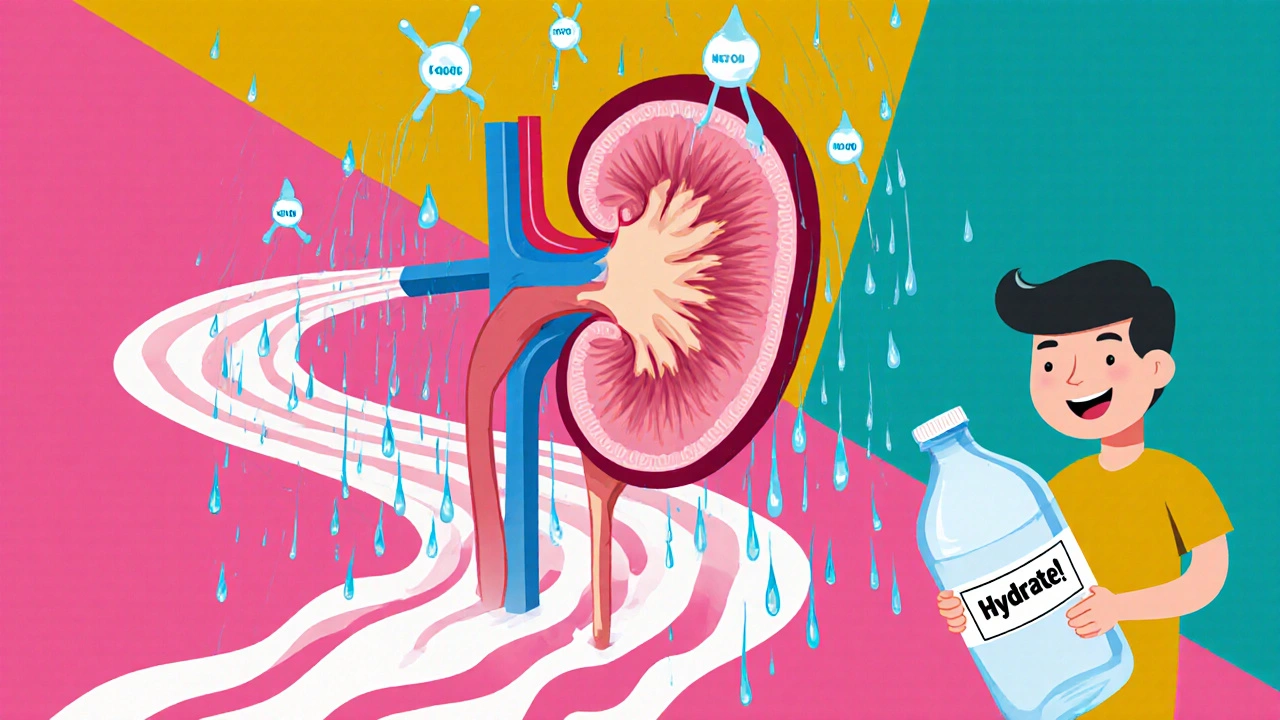Dehydration from SGLT2 Inhibitors: Risks, Signs, and What to Do
When you take an SGLT2 inhibitor, a class of diabetes medications that lower blood sugar by making the kidneys remove excess glucose through urine. Also known as gliflozins, these drugs include canagliflozin, dapagliflozin, and empagliflozin—commonly prescribed for type 2 diabetes and sometimes heart failure. But here’s the catch: they don’t just flush out sugar. They pull water out with it. And that’s where dehydration becomes a real, quiet risk—even if your blood sugar looks fine.
This isn’t just about feeling thirsty. SGLT2 inhibitors can lead to euglycemic diabetic ketoacidosis, a dangerous condition where your body starts burning fat for fuel, producing toxic acids, even when your blood sugar isn’t high. It’s rare, but it’s deadly if missed. Why? Because doctors often overlook it—your glucose levels seem normal, so they don’t test for ketones. But if you’ve been sweating, skipping fluids, or got sick with vomiting or diarrhea while on one of these meds, your body could be in trouble fast.
Dehydration from SGLT2 inhibitors doesn’t always come with classic symptoms like dry mouth or dizziness. Sometimes it’s just fatigue, confusion, or a sudden drop in energy. Older adults, people on diuretics, or those with kidney issues are at higher risk. Even healthy people can get hit if they cut back on water during exercise, hot weather, or illness. The problem? These drugs keep working even when you’re not eating or drinking normally. That’s why skipping a meal or having the flu can suddenly turn into a medical emergency.
You don’t need to stop your medication—but you do need to know how to use it safely. Drink water regularly, even if you’re not thirsty. Avoid alcohol and excessive caffeine. Check for ketones if you feel unwell, especially if you’re nauseous or breathing fast. Tell your doctor if you’re planning surgery, starting a low-carb diet, or have an infection. These aren’t just side effects—they’re warning signs that your body’s balance is tipping.
What you’ll find in the posts below are real, practical breakdowns of how these drugs affect your body—not just your blood sugar. You’ll see how dehydration links to kidney stress, how it interacts with other meds like diuretics, and what symptoms people often ignore until it’s too late. There’s no fluff here—just what you need to know to stay safe while taking one of the most popular diabetes treatments today.
SGLT2 Inhibitor Side Effects: Dehydration, Dizziness, and Blood Pressure Changes Explained
SGLT2 inhibitors help lower blood sugar and protect the heart, but they can cause dehydration, dizziness, and low blood pressure. Learn how these side effects happen-and how to manage them safely.
© 2026. All rights reserved.

